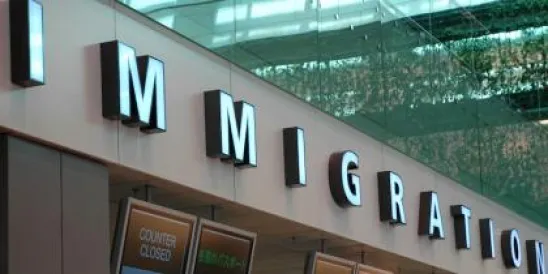The immigration executive actions announced by the President on November 20, 2014 are expected to be implemented in the next several months, and some initiatives may take longer. The new programs will be funded through application fees rather than appropriated funds. Here is basic information about some of the highlighted initiatives.
Business Immigration Changes
Foreign investors, entrepreneurs, researchers, inventors, and founders of start-up enterprises will benefit from a streamlined green card process, that does not require employer sponsorship if their admission to the U.S. is in the national interest. Further, individuals who may not yet qualify for a national interest waiver may be granted parole status on a case-by-case basis if they have been awarded substantial U.S. investor financing or otherwise hold the promise of innovation and job creation. This will be implemented through policy guidance.
Skilled workers with pending green cards will be able to move more easily to a new employer without having to start a new green card process. This will remove unnecessary restrictions on natural career progression and will promote general job mobility for workers facing lengthy green card processing times. The guidance also clarifies the fact that a worker can accept a promotion to a supervisory position or otherwise transition to a related job within his or her field of endeavor, without having to start the process over.
Individuals with an approved employment-based immigrant petition who are caught in the quota backlogs unable to file the last step of the green card process will be allowed to obtain the benefits of a pending adjustment, i.e., an employment authorization without the need to continue maintaining employment based non-immigrant visa with a specific employer. This is expected to impact about 410,000 people and will be done by regulation.
Multinational companies seeking L-1B specialized knowledge visas for international transfers will be given clearer guidance on the meaning of the term “specialized knowledge”. The guidance will be released in the next few months.
Work authorization will be extended to spouses of H-1B specialty occupation visa holders with an approved employment-based petition for green card, while waiting for a visa number. The regulation is expected to be finalized in January 2015.
Foreign graduates with degrees in Science, Technology, Engineering and Math will be granted longer employment permits after graduation to facilitate their transition to H-1B specialty occupation visas. In addition, the list of degree programs eligible for such extensions will be expanded. This will be done by regulation.
The process of seeking employment-based green card labor certifications, by testing the job market to prove that there is no U.S. worker meeting the minimum requirements for the position, will be modernized and may include a harmless error provision. The Department of Labor (DOL) will be reviewing the option for premium processing labor certifications; methods for aligning domestic worker recruitment with labor force shortages and surpluses; and ensuring that green card positions are fully open to U.S. workers.
Worksite enforcement will be improved by coordinated activities between the DOL and other agencies on the intersection between immigration law enforcement and labor and employment law enforcement. This may affect how employers are required to respond to ICE I-9 audits.
Various immigration-related agencies will be directed to make optimal use of the numbers of visas available under law. This effort will address issues such as whether derivative family members should be counted towards the visa quota and whether past unused visa numbers can be recaptured.
Deferred Action Benefiting Approximately 4.4 Million Undocumented Individuals
Two deferred action initiatives will be rolled out that are estimated to benefit 4.4 million undocumented individuals: (1) Deferred Action for Parents (DAP): Parents of U.S. citizens and lawful permanent residents (of any age) who have been continuously present since January 1, 2010, and who pass background checks and pay back taxes; and (2) Deferred Action for Children (DACA) Expansion: The age cap on DACA will be removed and the date when continuous presence must have started will be changed from June 15, 2007 to January 1, 2010. Both of these initiatives will provide deferred action for three years. The expanded DACA should be up and running in 90 days and deferred action for parents in 180 days.
Enforcement Priorities
Many of the existing ICE memos on enforcement priorities and prosecutorial discretion will be replaced by a new memo with three priorities: (1) suspected terrorists, convicted felons (including aggravated felonies), convicted gang members, and persons apprehended on the border; (2) persons convicted of serious or multiple misdemeanors and very recent border crossers (those who entered after January 1, 2014); and (3) those who, after January 1, 2014, failed to leave under a removal order or returned afterremoval.
What's Next
While the USCIS is not currently accepting applications related to these executive initiatives, entities and individuals who think they may be eligible for one or more of the new programs may gather relevant documentation and call our team with further questions.




 />i
/>i

